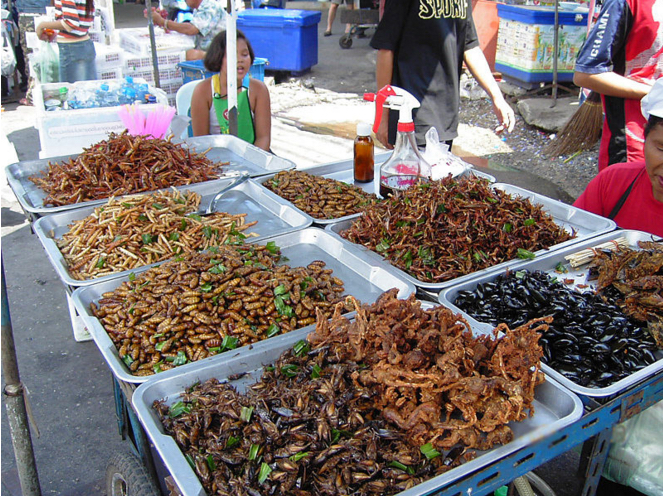![Deep-fried insects are displayed at a food stand in Bangkok. [Takoradee/WikiCommons]](http://www.jstudentboard.com/reporter/wp-content/uploads/2015/11/friedbuggin-300x224.jpg)
It is predicted that there will nine billion humans by 2050. As more people take up land, there will not be enough space to grow livestock, and the impact of climate change is already straining resources needed to feed farm animals. Yet, because insects contain protein, iron, and zinc, they can serve as efficient alternatives to beef, pork, and other meats while taking less land to harvest and contributing less to greenhouse gas emissions than livestock farming.
Indeed, Discover Magazine reports that two billion people, particularly in Africa and Asia, already consume the more than 1,900 edible insect species. Some popular ones include termites, caterpillars, stinkbugs, and mealworms. Evidence of various insects in ancient human feces in locations all over the world support the claim that people have been eating bugs for millennia.
However, in Western cultures, many people resent and are disgusted by the thought of an insect diet. One such person is Evan Gelately, a sophomore at West Ranch High School.
“I can’t imagine myself [eating insects],” Gelately told JSR. “Even thinking about it makes me a little sick.”
Ultimately, this disgust toward insects may be the most difficult part of getting people to switch to eating them.
Scientists and chefs hope to experiment with insects to create a wide variety of meals for the future. They aim to create tastier dishes that more people will accept as good food.

